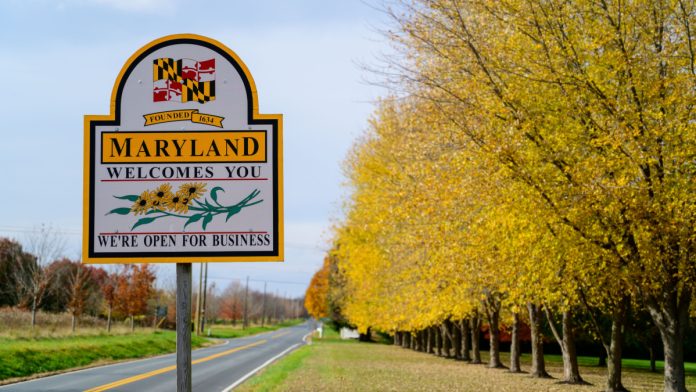Maryland lawmakers are taking steps to prevent college students from gambling on campus.
House Bill 1087 has been introduced in Maryland as a piece of legislation that aims to prohibit online gambling on college campuses across the state. The bill, which had its first reading in the state’s Ways and Means and Appropriations Committee, would allow institutions to establish a virtual perimeter, “geofence,” around their campuses that would block cell phone access to online sportsbooks. Maryland, which went live with sports betting in November 2022 is home to over 10 operators, including FanDuel and ESPN Bet.
HB 1087 would require four-year public institutions, Baltimore City Community College, and local community colleges to secure contracts with geolocation service companies that have deals with licensed sports betting operators in the Old Line State. The bill anticipates higher expenses for institutions that land the contracts but expects no impact on revenue.
If implemented, colleges would need to put in place a virtual perimeter by Aug. 1, 2024.
Current gaming legislation in Maryland provides institutions of higher education with “no technical ability to directly prevent” college students from online gambling. However, several institutions, including the University of Maryland Global Campus, have implemented blocks on their online networks to prevent connected devices from wagering.
Despite the blocks, devices used by students that are not connected to their networks can wager.
HB 1087 has drawn concern from Towson University, one of Maryland’s public universities. The institution believes that enforcing a geofence is “not technically feasible.” Towson cited geolocation accuracy, mobile settings, ethics, and private network usage as challenges to the bill’s desire to prevent wagering on college campuses.
Towson has been doing work around how to handle gambling on campus. As a recipient of a National Council on Problem Gambling agility grant, the university is using the money to integrate gambling awareness messaging into campus life.
College gambling impact outside of Maryland
HB 1087 adds to ongoing concern regarding higher education and online gambling.
Last week, Ohio became the latest U.S. jurisdiction to prohibit wagering on individual college player props following a request from Gov. Mike DeWine and the NCAA. The decision has been met with backlash from eight of the state’s 19 operational operators.
The Buckeye State joins more than 20 other jurisdictions across America that have barred wagering on college player props. According to the Ohio Casino Control Commission, bettors in the state wagered $104.6 million on player props in 2023, which generated just over $12 million in revenue for operators. In 2023, Ohio had a $7.6 billion total handle.













